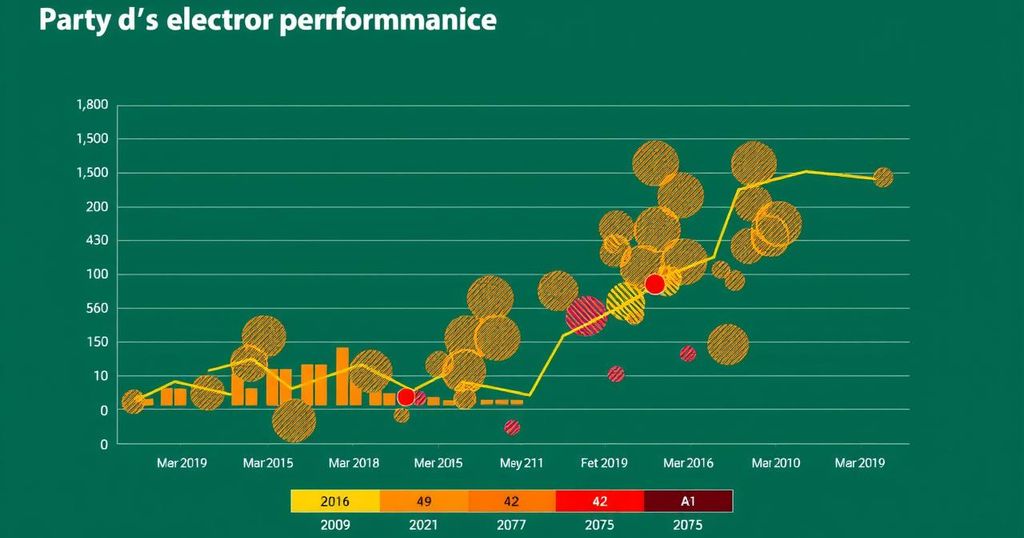The Electoral Shift: How Masisi’s BDP Misread Botswana’s Mood and Suffered a Massive Defeat
The Botswana Democratic Party (BDP), which has governed Botswana for over 50 years, has been ousted from power by the Umbrella for Democratic Change (UDC) in a significant electoral shift. The UDC captured 28 of 61 parliamentary seats amid public discontent fueled by economic challenges, particularly a decline in diamond prices leading to high unemployment and increased dissatisfaction with healthcare services. Duma Boko’s leadership and campaign promise of economic diversification resonated with voters, ultimately leading to President Masisi’s admission of his party’s failures.
In a remarkable political transformation, the Botswana Democratic Party (BDP), which has held power for more than five decades since independence in 1966, has been displaced by the Umbrella for Democratic Change (UDC) led by presidential candidate Duma Boko. This shift marks a historic shift in Botswana’s political landscape, reflecting a growing discontent among citizens stemming from economic hardships, particularly the decline in diamond prices, which significantly impacts the nation’s economy. At the recent elections, the UDC alliance made substantial gains, securing 28 out of 61 parliamentary seats, effectively dismantling the BDP’s longstanding control over governance. Despite its history of political stability and prosperity, the BDP faced significant challenges leading to its electoral defeat. The downturn in global diamond demand has severely affected the economy, leading to soaring unemployment rates, particularly among the youth, as well as rising dissatisfaction with healthcare services and low minimum wage levels. Opposition figures such as Bongani Malunga emphasized that public sentiment was increasingly focused on basic necessities, such as food and healthcare, which the BDP has reportedly failed to adequately address. Mr. Boko, a seasoned political figure and advocate for change, campaigned on promises to diversify the economy and create jobs, which resonated with the voters’ frustrations. With an impressive background in political leadership, he effectively utilized social media to communicate the urgency of his message, encapsulated by his slogan “Botswana First”. Following the electoral results, President Masisi acknowledged the miscalculation of his administration and expressed the need for the BDP to reassess its approach to the needs of the populace.
This political analysis focuses on the recent electoral defeat of the Botswana Democratic Party (BDP), which has governed Botswana since its independence in 1966, highlighting how changing voter sentiment and economic distress contributed to this shift. The BDP’s historical grip on power has been shaken by the rising popularity of the Umbrella for Democratic Change (UDC), whose coalition of opposition parties captured a decisive victory in the latest elections. Economic factors such as high unemployment, particularly among youth, dwindling diamond prices, and issues within the healthcare system emerged as critical elements in shaping electoral outcomes. The analysis also underscores the importance of effective communication between political parties and the electorate.
The electoral defeat of the Botswana Democratic Party (BDP) signifies a critical juncture in the nation’s political history as the Umbrella for Democratic Change (UDC) takes over amidst economic turmoil. This shift highlights the necessity for political leaders to prioritize the concerns of their constituents, particularly regarding economic management and service delivery. The results emphasize voters’ demands for better governance, job creation, and accessible healthcare. In response, the newly elected leadership must navigate the complex landscape to fulfill their promises and restore public faith in Botswana’s democratic processes.
Original Source: www.theeastafrican.co.ke




Post Comment